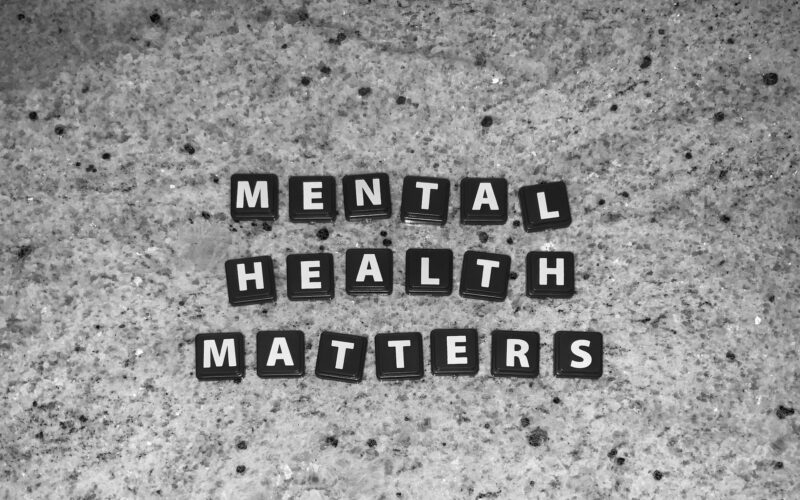Everyone knows that life in college isn’t easy. However, not everyone really understands how harsh it can get on young people’s mental health. 2022 reports state that 77% of students in colleges and universities experienced moderate to severe stress. In 35% of young people, this led to diagnosed anxiety, and in 27%, it caused depression. Needless to say, such psychological problems can affect students’ moods, concentration, energy levels, mental abilities, and, eventually, their performances in school and life in general.
The only way to ensure your stability and well-being is to start taking good care of your mental health right now. To get you on the right track, we compiled the top eight rules that every student must start using ASAP!
Reduce the Load
Surveys and research suggest that depression, anxiety, and other severe issues are most often associated with excessive academic load, lower grade point averages, and a huge number of pressing assignments. These are the major stress factors that every student has to deal with. Luckily, all you need to do is say, “Please, Write my thesis ,” and delegate a part of your daily load to professionals. Getting academic help when you feel the most pressured will help maintain your grades high while also reducing stress levels.
Make Sleep Your Priority
Another common reason why college students can’t maintain their well-being is that they don’t get enough sleep on a regular basis. They often work on their homework and cram at night. Not to mention partying and going out with friends. Now, according to the American Psychological Association, 21% of adults report experiencing higher stress levels when they don’t get enough sleep. The percentage is even higher (45%) among people who already had high levels of stress, and they report increasing severity of their condition. As you can see, sleep deprivation has a destructive effect on your wellness. Thus, the next rule is to make sleep your priority and get enough of it every day.
Take Care of Your Nutrition and Hydration
It’s not rare for college students to eat junk food, consume tons of coffee, and otherwise neglect their nutrition. Experts claim that an inadequate diet often leads to fatigue, slowed-down reactions, and impaired decision-making. Besides, it can cause anxiety and depression. Thus, if you want to feel great, you must rethink the way you eat. Opt for healthier foods, stick to a balanced diet, and don’t skip meals throughout the day. Also, be sure to stay hydrated and limit the consumption of “stressful” beverages like coffee, soft drinks, and energy drinks.
Get on the Move
Being too busy in college, students rarely find enough time to be active and exercise. And they don’t really want to get on the move a lot due to constant fatigue and hefty load. But the truth is that regular physical activity is good not only for your physical health but for your mental one too. It has been long proven that just 30 minutes of walking outside every day can boost mood and reduce stress. So be sure to add some sort of exercise to your daily schedule, and you will quickly notice an improvement.
Be Positive and Grateful
This rule should sound like a no-brainer. Nevertheless, we often forget these basics. When there is a lot of rush, pressure, and stress, it can be easy to fall into the trap of negative thoughts and attitudes. Clearly, if you are negative, this won’t contribute to your wellness. On the contrary, negative thoughts can make the situation even worse. To change this, you need to challenge the negative and unhelpful thoughts in your mind and focus on positivity instead. Also, it’s crucial to practice gratitude.
Practice Relaxing Activities
This is another rule that works great. Whenever you feel tired and anxious or are just in a bad mood, different relaxing activities can help you let go of the situation and feel better. There are plenty of great relaxing activities that will help. These include breathing exercises, meditation, muscle relaxation, journaling, etc. Start practicing them regularly to reduce your daily stress levels and learn to manage your emotions. To get started, try using available wellness programs or apps. This will help you understand where to start and keep track of your progress.
(https://www.freepik.com/free-photo/side-view-woman-meditating-nature_13704142.htm)
Do Things You Enjoy
Research shows that people who have hobbies are less likely to struggle with low mood, stress, and depression. This is rather easy to explain because when you do something you truly enjoy, your brain releases endorphins that increase the sense of well-being and reduce mental health issues. Thus, another rule you should use is to regularly make time to do something you enjoy. Find a hobby that will make you feel better. It really can be anything from small things like listening to music or biking in the park to learning how to paint or anything else you enjoy.
Socialize More
While some students tend to hang out with friends and party a lot, there is another category of young people who get so focused on their studies, research, assignments, and grades that they often isolate themselves from friends and family. And this approach is no better. Science provides evidence that social isolation leads to adverse health consequences that can include reduced immune function, as well as higher anxiety, depression, and suicide rates. Due to this reason, the last mental health rule you should apply to your life is to stay connected no matter what. Family and friends will help you avoid the feeling of loneliness and provide emotional support that promotes wellness. Outsource your homework to the best research paper writing services and find time to nurture your personal relationships.
The Bottom Line
Retaining your mental health while in college is crucial due to many reasons. Namely, it can have adverse effects on your immune system, mood, and academic performance. But most importantly, mental health issues can significantly worsen your everyday quality of life.
Now you have a list of the most important, science-backed rules that will help you support your mental wellness. Start using them right now to feel great every day!




